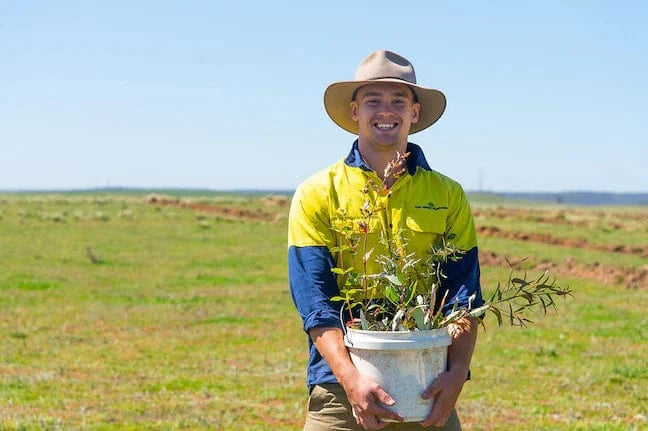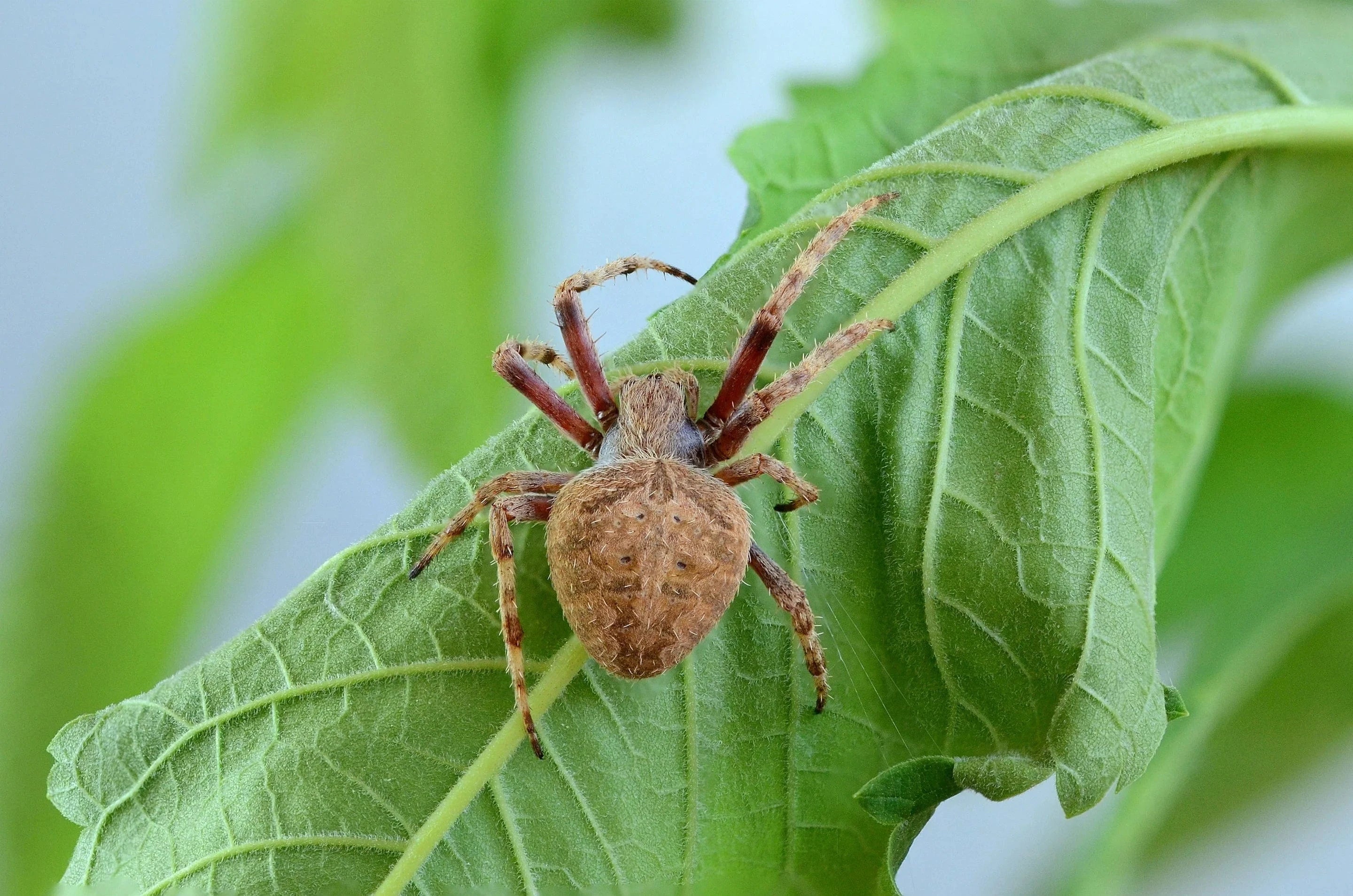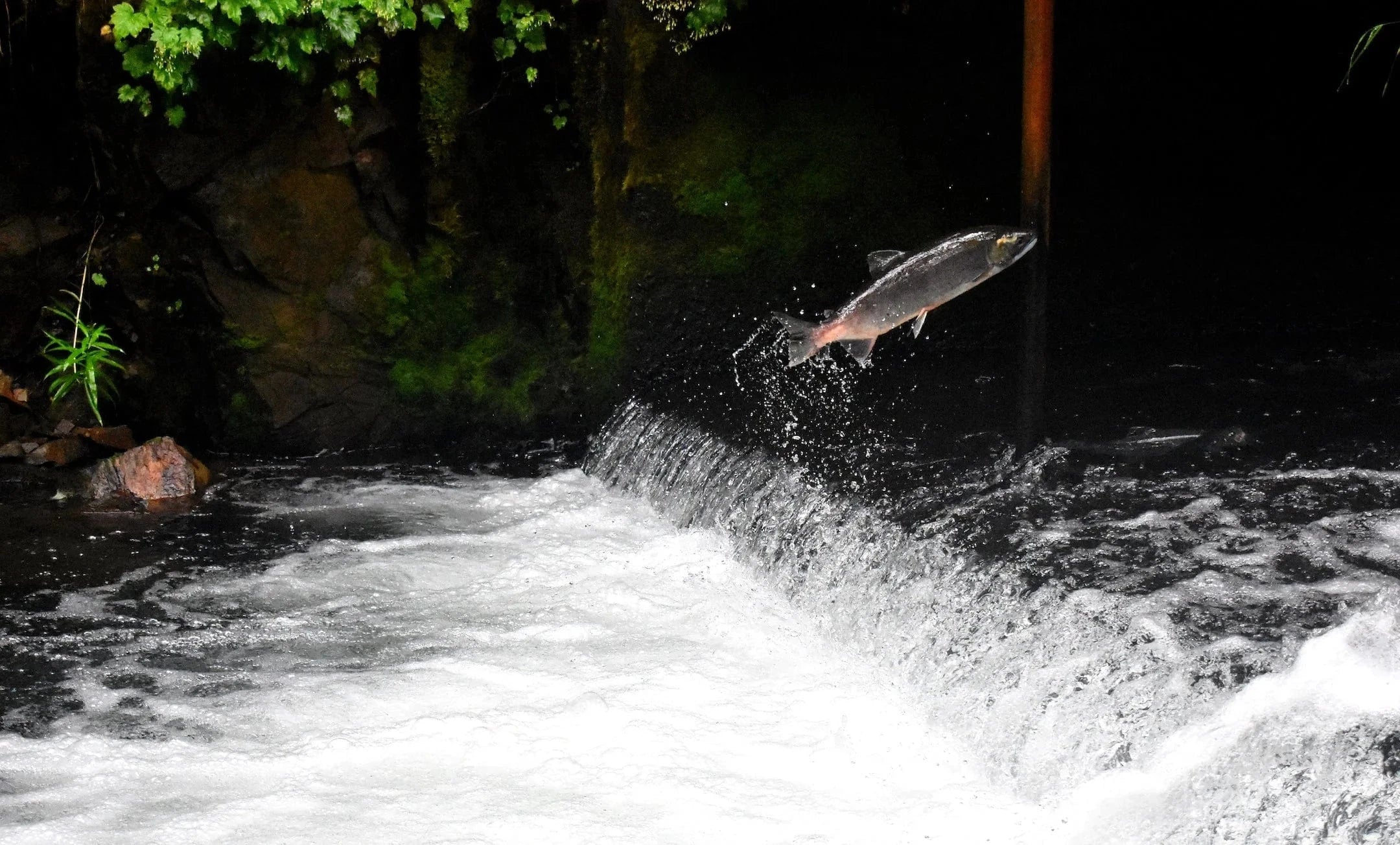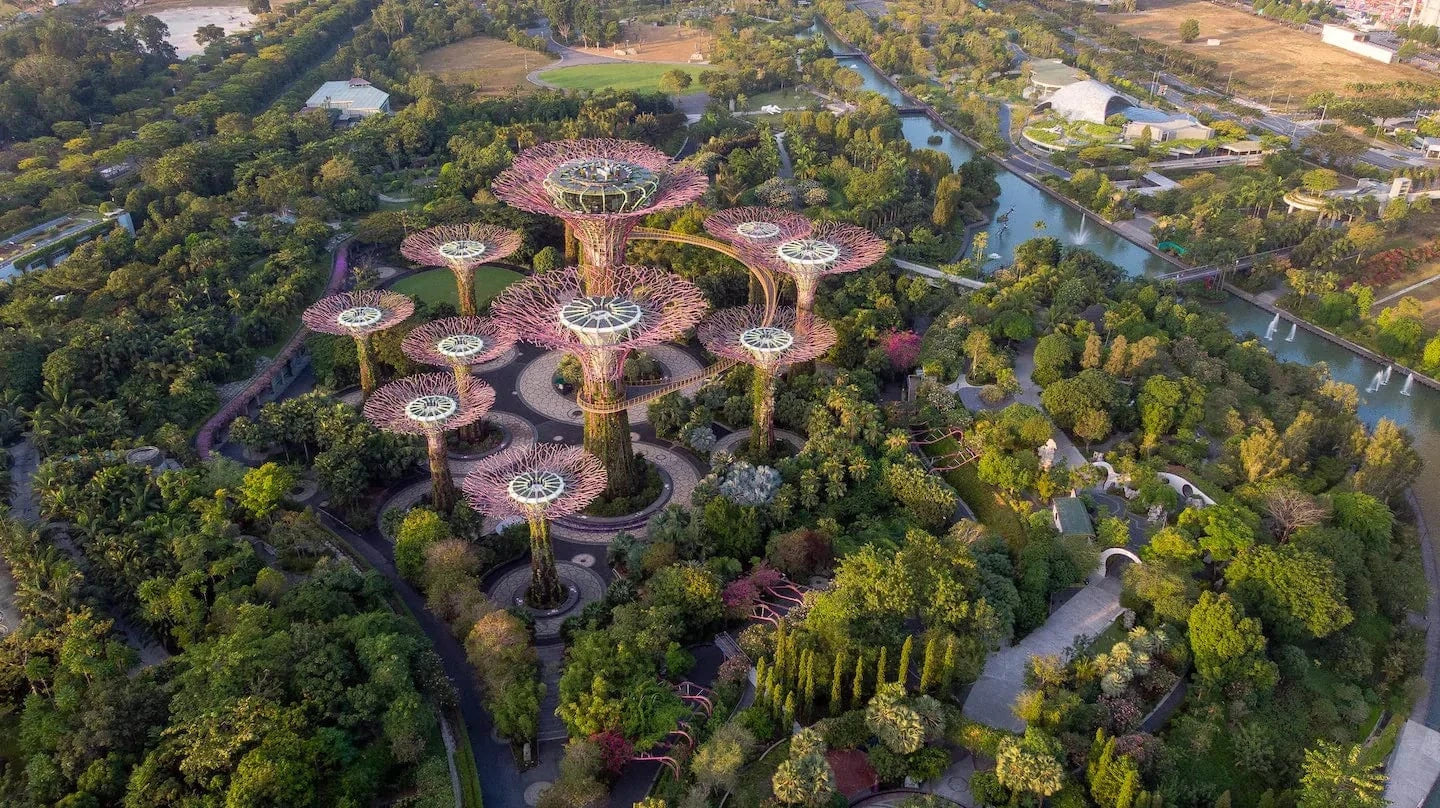Good News! 7 Positive Environmental Stories from February 2022

Get news, updates, & event Info delivered right to your inbox:
7 Good Environmental News Stories from the Past Month that will Make You Smile
February is the month of love, and when it comes to environmental news, there's plenty to report! This month, we've got everything from massive tree planting initiatives to studies about why nature lovers are less afraid of spiders and mini rainforests to rainforests growing on top of buildings! So buckle up for some positivity to boost those low wintertime serotonin levels. It's time for some more good news!

One Tree Planted has committed to planting 25 million trees across Australia by 2025
In partnership with AstraZeneca, the Global EverGreening Alliance and Greening Australia, we will plant 25 million trees across Australia by 2025. One of the largest-ever privately funded restoration projects in the country, it will cover approximately 20,000 hectares of land. That's equivalent to one-quarter of the city of Canberra in size, and will create habitat for dozens of endangered species. Establishing the 25 million trees will also sequester approximately 4.25 million tonnes of carbon dioxide over a 25-year crediting period, equivalent to the emissions produced by 920,000 cars running for an entire year.

People Who Feel Connected to Nature Tend to Be Less Afraid of Snakes and Spiders
If the photo above gave you the "icks", you may need to assess how connected you are to nature! A new study has found that phobias of spiders and snakes are less common in people who have a strong connection with nature. The study was conducted by researchers from universities in Hungary, Portugal and the Czech Republic. They implemented a Nature Relatedness Scale to collect data from participants that evaluated their feelings towards nature and how connected they feel. They also found that age and living in a rural areas were strong factors affecting the outcome (unsurprisingly, these people were less afraid of our "creepy" critters).

Scotland to Plant Millions of Trees Along Rivers to Save Wild Salmon From the Heat
The amazing thing about trees is that from above the ground to underwater, they solve so many problems. Organizations in Scotland are rallying to plant millions of trees along rivers and streams in an effort to reverse the effects of climate change. Water temperatures are becoming too warm for native salmon to spawn in, which drastically affects their population levels over time. Planting trees in riparian areas can help lower water temperatures, slow flow, filter out pollution, reduce erosion, and so much more.

Singapore Is Pioneering The Way To Creating A Greener Urban Environment
With climate change at the forefront of the global conscience, new solutions are arising every day that can make a big impact. Case in point: urban planners and architects in Singapore are integrating more and more nature into their city. They're doing everything from implementing more greenery into structures via green roofs to creating cascading vertical gardens and verdant walls. The benefits are endless! This green way of living provides benefits like cooler and cleaner air, better mental health, pockets of urban habitat, reduced temperatures, even carbon absorption, and more.
Restoring our temperate rainforests
We've planted a native temperate rainforest in the United Kingdom! This rare ecosystem type is found in just 7 areas around the world. The United Kingdom's west coast is one of those areas and holds a unique range of species. They are immensely at risk, with only 1% of temperate rainforest remaining in the UK right now. At a school in Cornwall, UK there's an effort to bring back this ecosystem by establishing a vibrant, fast-flourishing forest using the Miyawaki Method. This method is a process of densely planting nativetypes of tree speciesin order to encourage rapid growth and evoke biodiversity to imitate nature.
Nature Inspired Concepts For Turning Carbon Dioxide Into Clean Fuels
While we can think of a few nature-based solutions (planting trees, anyone?) that absorb carbon and filter air pollutants, researchers have developed a new concept that would not only convert carbon dioxide into clean air and sustainable fuels, but would also not produce any waste. Much of the current renewable energy sources can come at a wasteful cost, but new research has improved fuel production efficiency by up to 18X in a laboratory setting, proving that this process can be replicated. Cambridge researchers worked in partnership with a team from the Universidade Nova de Lisboa in Portugal to improve efficiency through electrolysis and enzymes. Long and confusing story short, technology might be catching up with nature to combat climate change!
Bison Restoration On Tribal Lands Has Cultural and Ecological And Economic Benefits
Our national mammal, the bison, was nearly hunted to extinction in the early 1800s. As a keystone species, bison help create habitat on the Great Plains for many species, including grassland birds. As they forage, they aerate the soil with their hooves, which aids in plant growth, and native seed dispersal. Bison restoration helps secure the food supply of Indigenous People of the plains. According to South Dakota State University, “In rural Native American communities, poverty is two to three times higher than in white rural communities, and, despite much of the grasslands being used for agriculture, Native Americans are twice as likely to be food insecure than white people and are 25% more likely to remain food insecure in the future.”
Hungry for more positivity? We've got plenty more good news stories from the past year. And if you're feeling really inspired, consider planting trees today!
Get news, updates, & event Info delivered right to your inbox:
Related Posts
9 Sustainable New Years Resolutions
18/12/2025 by Meaghan Weeden
Inspirational Quotes About Trees
16/12/2025 by Meaghan Weeden
The 9 Oldest, Tallest, and Biggest Trees in the World
11/12/2025 by One Tree Planted
Popular On One Tree Planted
Inspirational Quotes About Trees
16/12/2025 by Meaghan Weeden
The 9 Oldest, Tallest, and Biggest Trees in the World
11/12/2025 by One Tree Planted
What Causes Deforestation?
10/07/2025 by Meaghan Weeden
Fundraising Disclosures

Be Part of the
Restoration Movement
The Grove is more than just a monthly giving program: it's a vibrant community of individuals who are dedicated to reforestation and environmental restoration on a global scale.
As a member of The Grove, you affirm your commitment to restoring forests, nurturing biodiversity, and fostering positive global change.



